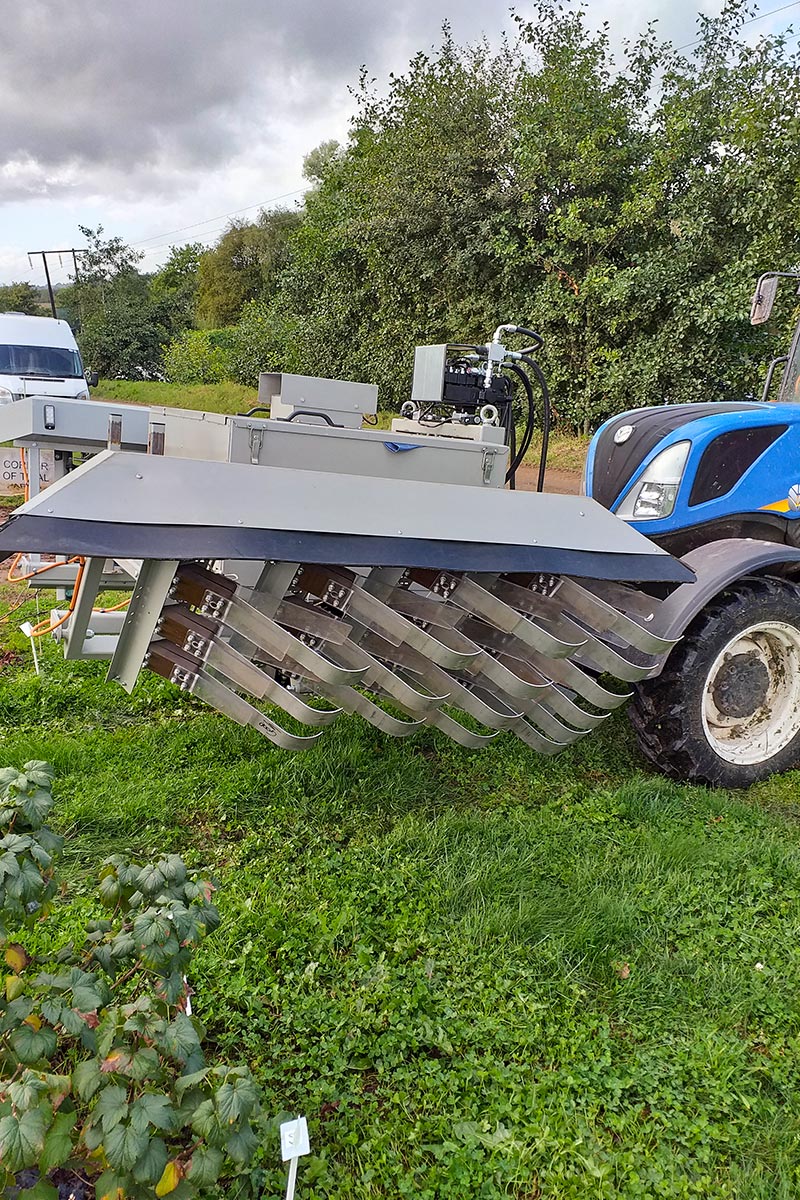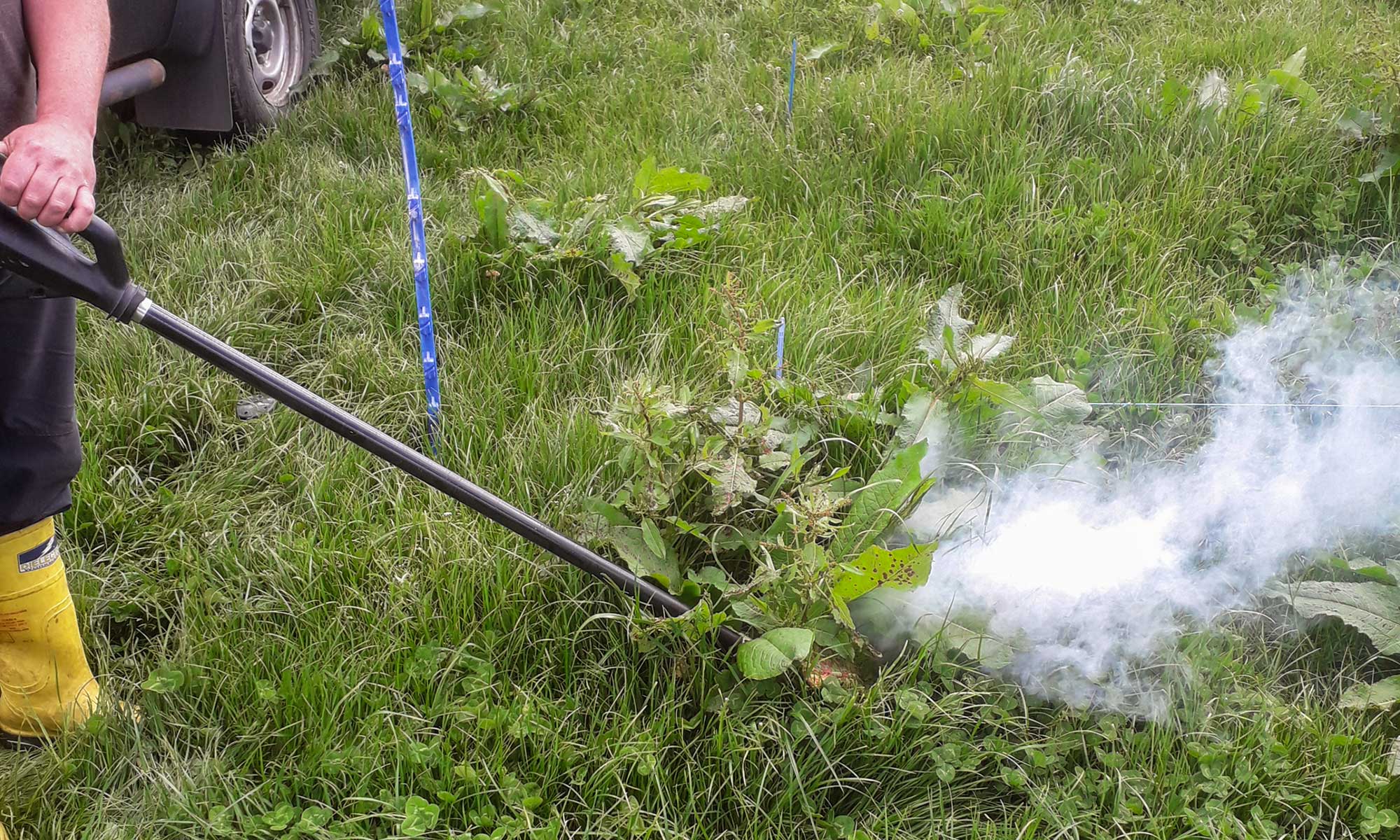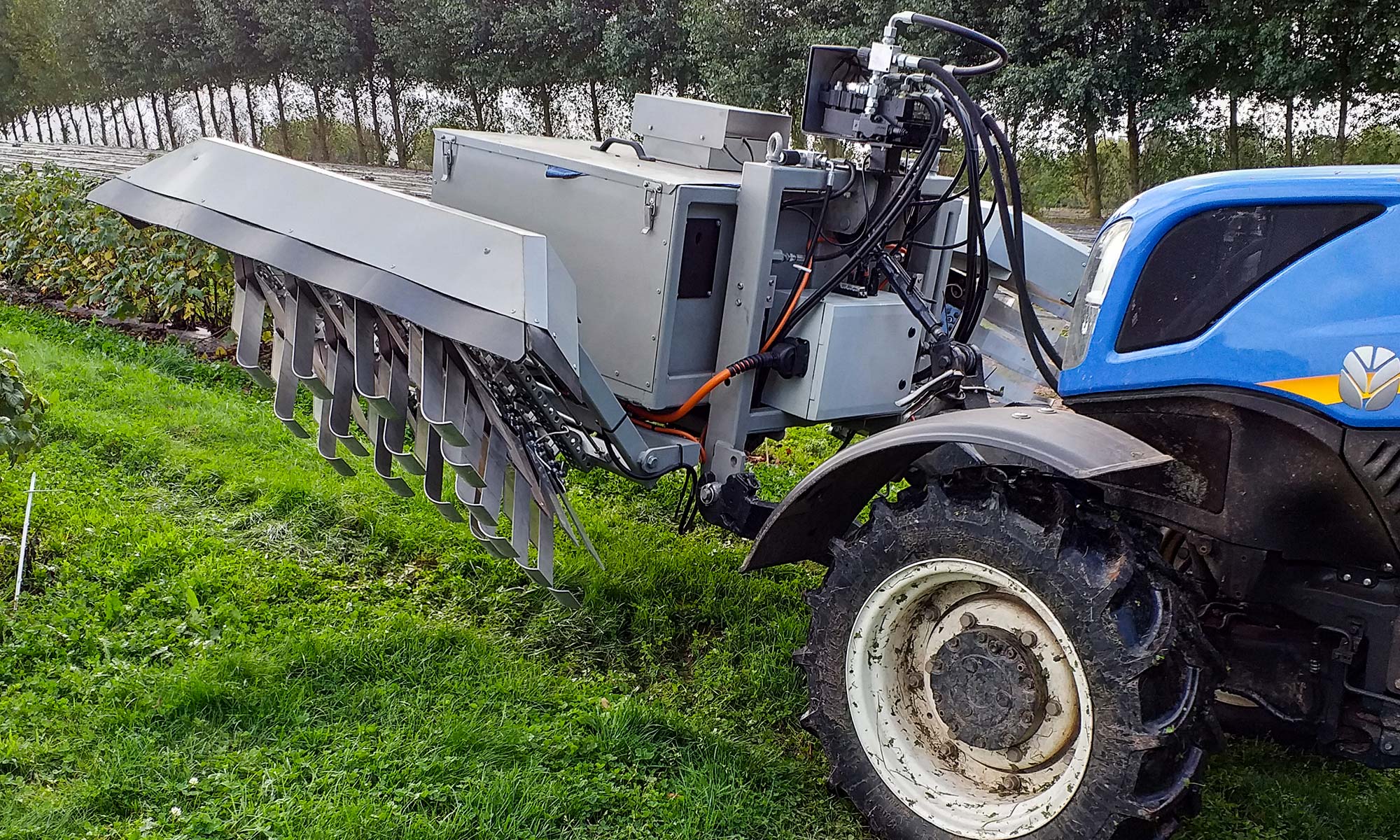United Kingdom
Electrical
Weed Control
The original project evaluated innovative new technology to control docks in grassland systems in Wales. An electrical weeder was trialed in grass fields, over a period of two years, on three dairy farms in south Wales which were suffering from a dock infestation (Rumex spp.). Electrical treatments were compared with a control of no intervention and a conventional herbicide.


Docks are a major problem in Welsh grassland systems. Infestation can reduce grass yields and utilisation through competition for light, moisture and nutrients. Docks are less palatable than grass and can also reduce silage quality as docks have only 65% of the feed value of grass. The use of herbicide sprays to control docks in pasture can have a negative effect on clover and implications for the wider catchment ecosystem if used incorrectly.
The project tested whether electrical weed control is a realistic alternative to herbicides or could be used in conjunction with herbicides for integrated weed management. A reduction in the use of herbicides in grassland would be of benefit in terms of water quality, whilst the ability to manage docks and maintain clover levels in swards would be of additional benefit to farmers, reducing overall nitrogen application rates.
Percentage reduction in dock ground cover at 4 and 8 weeks after treatments (WAT)
Results from these trials concluded that electrically treating dock plants on three treatment timings was very effective, in terms of dock removal and could be equivalent to a herbicide application alone (Figure 1). The economics of the electric weeding system has not been assessed in these trials, as tractor-mounted kit was not available for this trial.
- 4 WAT (23 Aug)
- 8 Wat (21 Sept)
Interactive graph (Figure 1)

Electrical weed control is extremely promising!

As an additional weed management tool, that could benefit organic farmers or those requiring lower herbicide inputs. It could help to retain clover in grass swards, where applied when the height of the dock plants is above the sward. Feedback from the host-farmers proved their interest in the technology and they saw great scope for the future if the kit could be tractor-mounted. A prototype tractor mounted electrical weeder has been successfully trialed in blackcurrants, with commercial models soon to be available in top fruit and in row crops such as beet and maize.


